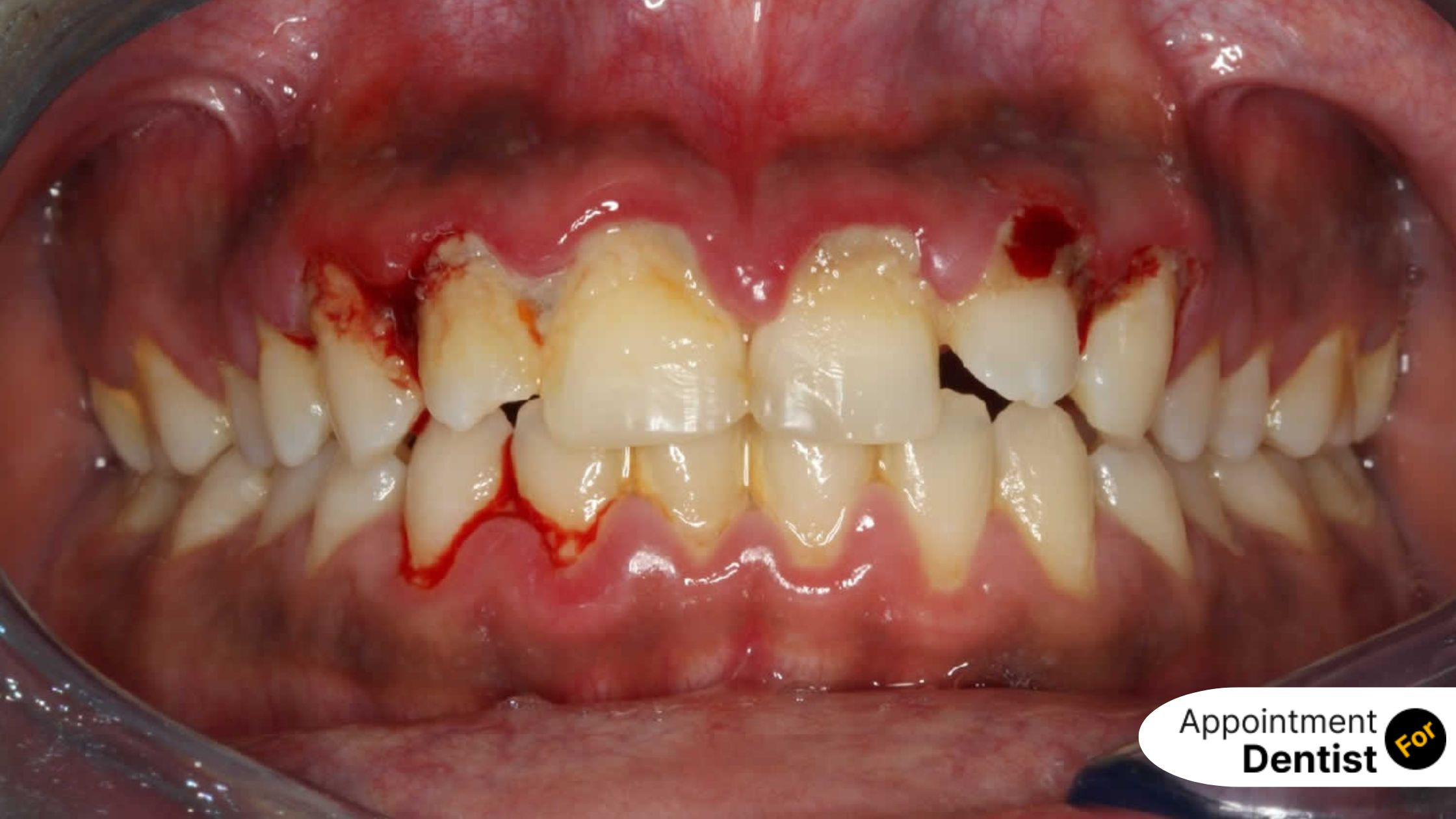Understanding and Managing Trench Mouth (Acute Necrotizing Ulcerative Gingivitis)
Posted on July 27, 2024 by Admin

Trench Mouth, also known as Acute Necrotizing Ulcerative Gingivitis (ANUG), is a severe gum infection that requires prompt attention and treatment. This condition can cause painful ulceration and inflammation of the gums, leading to potential complications if not managed effectively. In this article, we will explore the causes, symptoms, diagnosis, treatment options, and preventive measures for Trench Mouth to help you understand and manage this dental condition effectively.
Causes of Trench Mouth
Trench Mouth is primarily caused by an overgrowth of bacteria in the mouth, often in conjunction with other predisposing factors such as poor oral hygiene and a weakened immune system. The specific bacteria involved in causing ANUG include Fusobacterium, Prevotella intermedia, and Treponema species. These bacteria can thrive in an environment where there is a buildup of plaque and tartar on the teeth and gums.
Certain risk factors increase the likelihood of developing Trench Mouth:
- Poor Oral Hygiene: Inadequate brushing and flossing can lead to the accumulation of plaque, which provides a conducive environment for bacterial growth.
- Smoking and Tobacco Use: These habits can weaken the immune system and impair blood flow to the gums, making it easier for infections to take hold.
- Stress: High-stress levels can compromise the immune system, making individuals more susceptible to infections.
- Nutritional Deficiencies: A diet lacking essential nutrients, particularly vitamin C, can weaken the immune response and contribute to the development of gum infections.
Must Read: Treating Black Hairy Tongue: Causes and Solutions
Symptoms of Trench Mouth
The symptoms of Trench Mouth can develop suddenly and may include:
- Severe pain in the gums
- Ulceration (sores) between the teeth and on the gums
- Grayish film on the gums
- Bad breath (halitosis)
- Fever and swollen lymph nodes in severe cases
If you experience any of these symptoms, it is essential to seek dental care promptly to prevent the condition from worsening.
Diagnosis
Diagnosing Trench Mouth typically involves a thorough examination by a dentist or dental hygienist. They will evaluate your oral health history, examine your gums for signs of inflammation and ulceration, and may take samples from your gums to identify the specific bacteria causing the infection.

Treatment Options
Treatment for Trench Mouth focuses on controlling the infection, reducing symptoms, and promoting healing
- Antibiotics: Prescribed to eliminate bacterial infection. Common antibiotics used include metronidazole and amoxicillin.
- Mouth Rinse: Chlorhexidine mouthwash may be recommended to reduce bacteria in the mouth and promote healing.
- Professional Cleaning: Removing plaque and tartar buildup from the teeth and gums is crucial to preventing further infection.
- Healthy Oral Hygiene Practices: Brushing and flossing regularly to prevent plaque buildup and maintaining good oral hygiene habits.
Preventive Measures
Preventing Trench Mouth involves maintaining good oral hygiene and adopting healthy lifestyle habits:
- Regular Dental Check-ups: Visit your dentist for regular cleanings and check-ups to detect and treat oral health issues early.
- Healthy Diet: Eat a balanced diet rich in vitamins and minerals to support overall oral and immune health.
- Avoiding Tobacco: Quit smoking and avoid tobacco products to reduce your risk of gum disease and other oral health problems.
Must Read: Addressing and Managing Tartar Buildup: Effective Techniques
Conclusion
Trench Mouth is a serious gum infection that requires prompt treatment to prevent complications such as gum tissue loss and tooth loss. By understanding the causes, symptoms, diagnosis, treatment options, and preventive measures outlined in this article, you can take proactive steps to manage your oral health effectively. Remember, early detection and intervention are crucial in successfully treating Trench Mouth and preventing its recurrence.
If you suspect you may have Trench Mouth or are experiencing symptoms such as severe gum pain and ulceration, consult your dentist or healthcare provider promptly for evaluation and treatment.
By prioritizing good oral hygiene and addressing risk factors, you can reduce your chances of developing Trench Mouth and maintain a healthy smile for years to come.
Faqs
-
1. What causes Trench Mouth?
Trench Mouth is primarily caused by bacterial overgrowth in the mouth, particularly Fusobacterium, Prevotella intermedia, and Treponema species. Poor oral hygiene, smoking, stress, and nutritional deficiencies also contribute.
-
2. What are the symptoms of Trench Mouth?
Symptoms include severe gum pain, ulceration (sores) on gums, grayish film on gums, bleeding gums, bad breath (halitosis), and in severe cases, fever and swollen lymph nodes.
-
3. How is Trench Mouth diagnosed?
Diagnosis involves a dental examination to assess gum health, visual inspection for signs like inflammation and ulcers, and sometimes microbial testing of gum samples to identify the bacteria causing the infection.
-
4. What are the treatment options for Trench Mouth?
Treatment typically includes antibiotics (e.g., metronidazole), pain relief (e.g., ibuprofen), chlorhexidine mouthwash, professional dental cleaning, and improved oral hygiene practices.
-
5. How can Trench Mouth be prevented?
Prevention involves maintaining good oral hygiene (brushing and flossing), regular dental check-ups, a balanced diet rich in vitamins, avoiding tobacco use, and managing stress effectively.
Recent Post
- The Importance of Oral Health Education for Children
- How to Choose the Right Orthodontic Treatment for Adults
- The Link Between Oral Health and Stroke Risk
- How to Address and Prevent Gum Recession
- Innovations in Dental Anesthesia: Pain-Free Procedures
- The Role of Saliva in Oral Health: Functions and Disorders
- Exploring Holistic Dentistry: What You Need to Know
- How Oral Health Affects Your Immune System
- The Benefits of Using Dental Probiotics
- Oral Health and Pregnancy: Myths and Facts